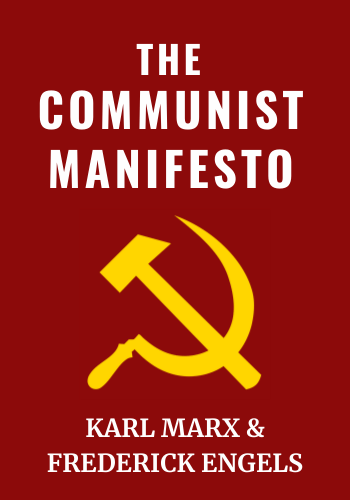
The Communist Manifesto
Karl Marx
4 Key ideas
13 MINS
4.4 (2.5k)
Politics Economics History Philosophy
Curious about the intricacies of class struggles and the dynamics of society?
Intrigued by the principles of Communism and its impact on the working class?
Want to understand different forms of socialism and their relevance in modern history?
Dive in to explore how the merchant owners, in their quest for capital, inadvertently empower their own downfall and how the working class rise.
Curious about the intricacies of class struggles and the dynamics of society?
Intrigued by the principles of Communism and its impact on the working class?
Want to understand different forms of socialism and their relevance in modern history?
Dive in to explore how the merchant owners, in their quest for capital, inadvertently empower their own downfall and how the working class rise.


Curious about the intricacies of class struggles and the dynamics of society?
Intrigued by the principles of Communism and its impact on the working class?
Want to understand different forms of socialism and their relevance in modern history?
Dive in to explore how the merchant owners, in their quest for capital, inadvertently empower their own downfall and how the working class rise.
Key Ideas
Read | Listen - Full summary
About Author
Karl Marx, along with Friedrich Engels, co-authored "The Communist Manifesto" in 1848. Marx was a German philosopher, economist, historian, sociologist, political theorist, journalist, and socialist revolutionary. His work in economics laid the foundation for much of the current understanding of labor and its relation to capital, and he has been described as one of the most influential figures in human history. Marx's theories about society, economics, and politics, which are collectively known as Marxism, advocate for a society in which the workers own the means of production and work towards a classless society.
Learn Key Ideas from 9000+
non-fiction books in 15min.



